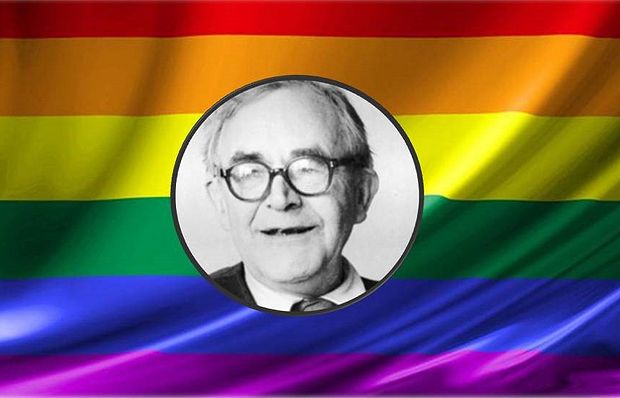Karl Barth on homosexuality
The Swiss giant still commands enough respect to be taken seriously both within and without the walls of the academic community (certainly here, at least, in Continental Europe).
16 MAY 2015 · 23:03 CET

Love him or hate him, Karl Barth refuses to go away. To this day, his name is never far from controversy in biblical and theological circles. Just about every other day his name appears on Google News feeds. Quite a feat for someone who has been dead for the best part of fifty years! Wouldn’t you say?
The reason I revive his legacy today is strictly an ethical one. I believe a short extant (and widely forgotten) passage from his massive magnum opus Church Dogmatics (1932-67) can orient all Bible-students in this confusing climate of pro-gay marriage and pro-gay ordination around which contemporary Christendom is currently circulating. The Swiss giant still commands enough respect to be taken seriously both within and without the walls of the academic community (certainly here, at least, in Continental Europe).
So, what does Barth say about homosexuality? Let me resurrect three key Barthian observations.
01.- Homosexuality, says Barth, is a sin against God’s primal purpose in creation.
Make no mistake about it. Barth only proceeds to speak of homosexuality after clearly establishing that God’s image on earth was the unison of male and female in Eden (Genesis 1:26). Theologically this context is important to keep in mind because it shows us that Barth is not anti-gay for the mere sake of being so; but rather Barth’s anti-homosexual stance stems from his pro-creational confession. Sometimes love must say ‘no’. Not only homosexuality, but everything, “which points in the direction of male or female seclusion […] is obviously disobedience” (i). Men and women were made to abide together in the community of creation. Who commands a man to run away from woman (or vice versa)? Certainly not the Lord of all creation! God’s plan was men and women together as one. Homosexuality, thus, is a manifest deviation from this plan.
02.- Homosexuality, says Barth, is a social “malady”.
In Barth’s terms gayness is a, “physical, psychological and social sickness, the phenomenon of perversion, decadence and decay, which can emerge when man refuses to admit the validity of the divine command.” Its sick nature has to do with its blatant denial of the one true God as well as a negation of true humanity (the two always stand or fall together). Our Swiss thinker could hardly position himself in more explicit terms. Barth connects homosexuality with idolatry (i.e. God-denying) and the glorification of the creature over the Creator (just in much the same way Paul did back in Romans 1:26-27). In his analysis, homosexuality is “the corrupt emotional and finally physical desire in which […] man thinks that he must and can find in man, and woman in woman, a substitute for the despised partner.”
03.- Homosexuality, says Barth, is resolutely opposed to Christian ethics.
What, then, is the Christian to do or to say in such an instance? Barth replies, “The decisive word of Christian ethics must consist in a warning against entering upon the whole way of life which can only end in the tragedy of concrete homosexuality.” And how are Christians to so warn folk? By preaching the divine command! Men (and women) must be told that they are not sovereign in themselves and that they were made for one another. A man with a man does not resemble unity in diversity, merely unity in multiplicity or unity in uniformity. A man can only be genuinely human with woman (and a woman can only be genuinely human with man). Therefore, the preacher must protest, warn and call to conversion. He must never bless any type of same-sex union. And in the proportion that a hearer “accepts this insight, homosexuality can have no place in his life, whether in its more refined or cruder forms.”
Wrapping up
All in all, I must confess that it is refreshing to find an internationally acclaimed theologian like Barth unafraid to call things by their name. But what perhaps is most laudable in his anti-homosexual manifesto is his stress on the “forgiving grace” of God. Ultimately, there is no human act or condition that cannot be overcome by the power of the Gospel. On the one hand, we must denounce homosexuality in the strictest of terms; but on the other hand, we must never forget to point the way to the forgiveness, grace and mercy available for every repentant soul. Jesus is still an almighty Saviour.
----------------------------------------
(i) All quotes taken from Barth’s Church Dogmatics III.4, pp. 165-166.
Published in: Evangelical Focus - Fresh Breeze - Karl Barth on homosexuality
